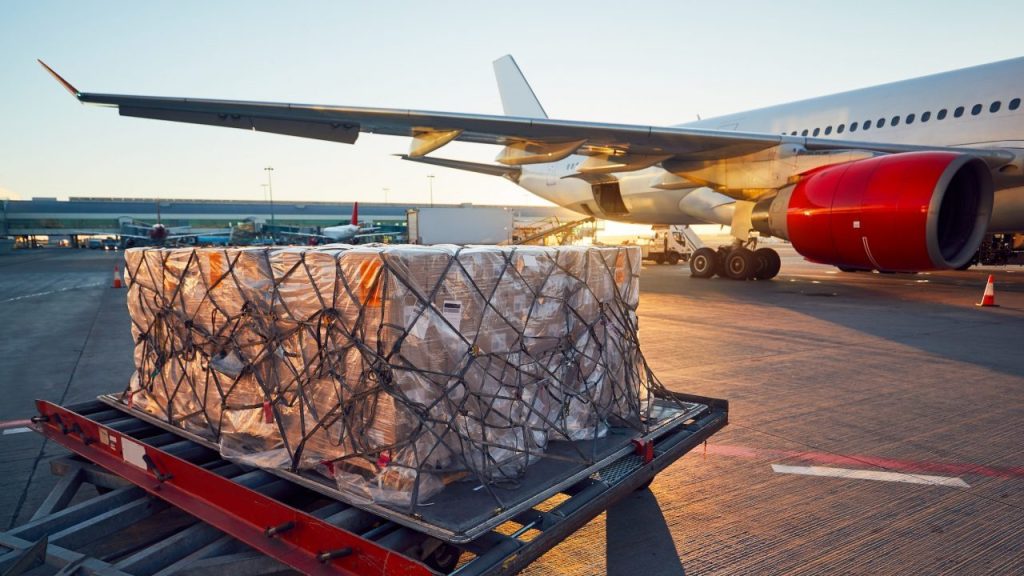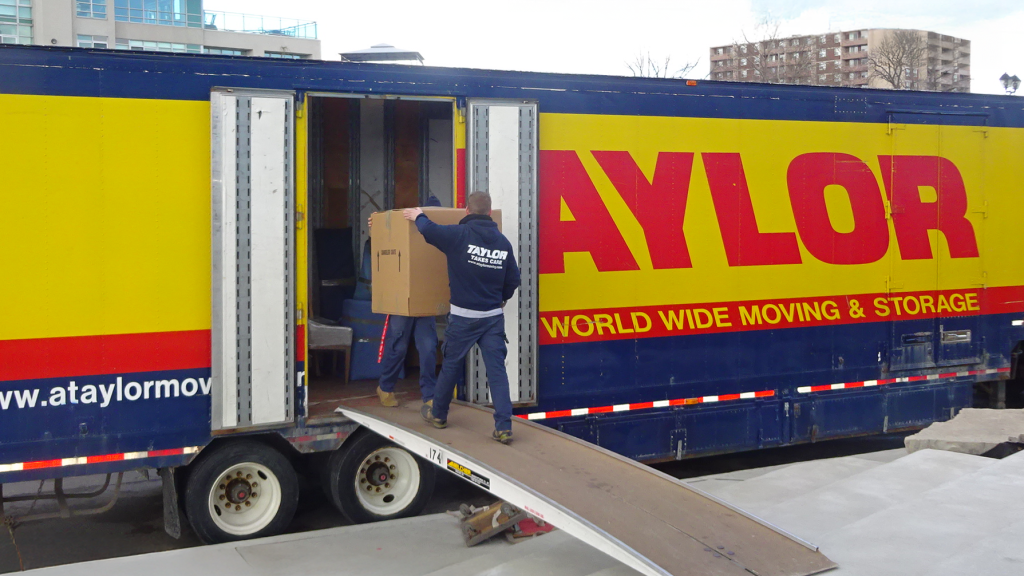
International Moving between Canada and Switzerland
Moving overseas to or from Canada and Switzerland? Learn more about packing, shipping, and customs to make your international relocation stress-free.
Planning Your Move
The first step in your international move is a tailored assessment of your needs. You can complete our AI-powered survey or meet with our consultants via Zoom, Google Meet, or in person. During this consultation, we’ll determine your packing requirements, customs considerations, and other key details.

Why Choose Taylor International?
We offer flexible, high-quality moving solutions through our extensive supply chain. As members of the International Association of Movers (IAM) and Fédération Internationale des Déménageurs Internationaux (FIDI), we provide access to a vast global network, ensuring reliable service with backup options for a seamless transition.
- Premium Service: Our FIDI-certified partners offer top-tier care.
- Budget-Friendly Options: IAM-certified movers provide reliable, cost-effective solutions.
- Balanced Approach: We customize packages to match your priorities.
- Diversified Supply Chain: No matter the option selected in the event of a major issue, we have back-up plans to ensure your move is performed with your customized plan.
- Extensive 3rd Party Partnerships: Our network also encompasses a vast array of 3rd party services from appliance disassembly, gym disassembly and other critical expert assistance to ensure your items are protected.
- Robust Cybersecurity: Our methods, procedures and systems enable your most sensitive information to be secure.
- Customs Mastery: Our international move managers work with you to ensure that you can navigate the complexities of customs, imports, exports and local regulations with the upmost care.
- Comprehensive Insurance: Taylor International provides full replacement value so you do not need to worry about the what ifs and instead focus on the will bes when you get to your destination. We will also source any services needed to render this service globally.
Our strict vetting process ensures only top-performing providers handle your shipment. If a supplier doesn’t meet our standards, they’re removed from our network—your satisfaction is our priority.
Choosing the Right Shipping Method
We help you select the most efficient transport option:

Sea Freight
The most economical choice for most moves.

Air Freight (LTL)
Faster delivery at a premium.

Hybrid Solutions
Essential items arrive by air, with the rest shipped via sea.
No matter your budget, we’ll find the best option for you.
Your Moving Journey
After your consultation, our specialists create a personalized moving plan and provide a detailed quote. Once confirmed, a dedicated moving coordinator will manage the process, ensuring smooth navigation of documentation, customs, and compliance requirements—avoiding delays or unexpected fees.
Relocating from Canada to Geneva, Switzerland’s international city, offers an exciting opportunity to live in a global hub known for its rich cultural diversity, high quality of life, and picturesque surroundings. Nestled on the shores of Lake Geneva, with the Alps providing a stunning backdrop, Geneva is home to numerous international organizations, multinational corporations, and a vibrant expat community. However, moving to this cosmopolitan city requires careful planning to ensure a smooth transition.
Visa & Residency Requirements
As a Canadian citizen, if you plan to stay in Geneva for more than 90 days, you will need to apply for a residence permit. The type of permit you require depends on your reason for moving—work, study, family reunification, or retirement. If you’re moving for work, your employer will generally assist with the application process. Otherwise, you will need to apply through the local migration office in Geneva and provide necessary documents such as proof of employment, accommodation, health insurance, and financial means.
Housing & Accommodation
Geneva’s housing market is notoriously competitive, with demand often exceeding supply, particularly for rental properties in the city center. Rental prices can be high, and it’s common for newcomers to face challenges securing long-term accommodation. The process typically requires proof of employment or sufficient income, a security deposit, and references. Many new arrivals start with temporary accommodation or serviced apartments before committing to a permanent residence. Popular neighborhoods for expats include Eaux-Vives, Carouge, and Plainpalais.
Banking & Finances
Setting up a Swiss bank account is a crucial step for managing daily expenses and receiving payments. Most banks require proof of residence, identification, and a valid residence permit to open an account. Switzerland uses the Swiss Franc (CHF), not the Euro, so it’s important to account for currency exchange when planning your finances. Credit and debit cards are widely accepted, but cash is still used for smaller transactions. Consider setting up automatic bill payments to simplify your financial management.
Healthcare & Insurance
Unlike Canada’s public healthcare system, Switzerland requires all residents to have private health insurance. You must select an insurance provider and obtain coverage within three months of arriving in Geneva. The Swiss healthcare system is world-renowned for its quality, but without health insurance, medical care can be very expensive. There are various plans available, so it’s important to compare options to find the one that best suits your needs and budget.
Cost of Living & Taxes
Geneva is one of the most expensive cities in the world, and the cost of living can be significantly higher than in most Canadian cities. Rent, dining out, transportation, and groceries are all costly, although high salaries in Geneva often offset these expenses. Switzerland has relatively low income tax rates, though tax rates can vary depending on your canton of residence. It’s advisable to consult a tax professional to understand your specific obligations, particularly if you plan to work in Switzerland.
Language & Cultural Integration
The official language of Geneva is French, and while many locals speak English, especially in the international community, it’s beneficial to learn French to integrate fully into Swiss life. Many expats find enrolling in a language course helpful for improving their communication skills and enhancing their job prospects. Swiss culture is known for its respect for privacy, punctuality, and a strong work-life balance. Understanding these cultural norms will help ease your transition into the local community.
Transportation & Mobility
Geneva has an excellent public transportation network, including buses, trams, and trains that are reliable and easy to navigate. Many residents rely on public transport rather than owning a car due to the high cost of parking and excellent connectivity. If you plan to drive, you will need to exchange your Canadian driver’s license for a Swiss one within a year of arrival. Cycling is also a popular and environmentally friendly option in Geneva.
Final Thoughts
Moving to Geneva from Canada offers an exciting new chapter filled with cultural exploration, professional opportunities, and unparalleled natural beauty. While the city presents challenges such as high living costs and a competitive housing market, careful planning and understanding of local processes can make your transition much smoother. By securing housing early, navigating the Swiss healthcare system, and embracing the local language and culture, you’ll be well on your way to enjoying your new life in Geneva.
Relocating from Canada to Interlaken, Switzerland, offers a once-in-a-lifetime opportunity to live in one of the most picturesque and adventure-filled locations in Europe. Nestled between Lake Thun and Lake Brienz, with the towering Jungfrau, Eiger, and Mönch mountains as a backdrop, Interlaken is a paradise for nature lovers, outdoor enthusiasts, and anyone looking for a high quality of life. However, making this transition requires careful planning and consideration to ensure a smooth and successful move.
Visa & Residency Requirements
As a Canadian citizen, you will need a residence permit if you plan to stay in Switzerland for more than 90 days. Whether you’re moving for work, study, family reunification, or retirement, you’ll need to apply for a permit through the local migration office in Interlaken. For work-related moves, your employer will typically assist with the permit process. Proof of income, accommodation, health insurance, and a valid passport will be required during the application process.
Housing & Accommodation
The housing market in Interlaken can be competitive, especially in the peak summer and winter months when tourism is at its highest. While rental prices in Interlaken are generally lower than in larger Swiss cities like Zurich or Geneva, demand for properties in this tourist hub can drive up prices. Most newcomers start with temporary accommodation before securing a long-term rental. The rental process typically requires proof of employment or financial stability, along with a security deposit, which is standard practice in Switzerland.
Banking & Finances
Setting up a Swiss bank account is essential for managing day-to-day expenses, receiving salary payments, and engaging in financial transactions. You will need a residence permit and proof of address, along with identification, to open an account. Switzerland uses the Swiss Franc (CHF), not the Euro, so it’s important to account for currency conversion when budgeting for your move. Credit and debit cards are widely accepted, but cash is still commonly used in smaller transactions.
Healthcare & Insurance
Unlike Canada’s publicly funded healthcare system, Switzerland requires all residents to obtain private health insurance. You must secure a policy within three months of arrival. Healthcare in Switzerland is of high quality, but without insurance, medical care can be costly. Make sure to compare various providers and plans before choosing the best coverage for your needs, as premiums can vary based on age, coverage level, and location.
Cost of Living & Taxes
Interlaken is considered more affordable than larger cities like Zurich and Geneva, but the cost of living is still relatively high. The price of groceries, transportation, and dining out can be expensive, although local and regional produce tends to be more affordable than imported goods. Switzerland’s tax system is decentralized, and tax rates can vary by canton. It’s advisable to consult a tax advisor to ensure you’re aware of your obligations.
Language & Cultural Integration
In Interlaken, the primary language spoken is Swiss German, although English is widely understood, especially in tourist areas. To ease your integration and enhance your job prospects, it is highly recommended to learn at least basic German. Switzerland places a high value on punctuality, respect for privacy, and maintaining a work-life balance, all of which are important to understand when settling in the area.
Transportation & Mobility
Interlaken is well-served by a reliable public transportation network, including buses, trains, and boats, making it easy to explore the surrounding region. Many residents rely on public transport rather than owning cars due to the expense of parking and the convenience of having public transportation available. If you plan to drive in Switzerland, you will need to exchange your Canadian driver’s license for a Swiss one within one year of your arrival.
Final Thoughts
Moving to Interlaken from Canada can be a thrilling experience, offering the chance to live amidst natural beauty while enjoying the efficient Swiss way of life. With its relaxed pace, outdoor lifestyle, and welcoming community, Interlaken is an ideal destination for those seeking a unique, high-quality living experience. Careful planning, understanding local regulations, and embracing Swiss culture will help ensure a successful and smooth transition to your new life in this stunning Alpine paradise.
Moving from Canada to Bern, Switzerland’s capital, is an exciting transition that offers a mix of rich history, political significance, and a high quality of life. Bern is known for its well-preserved medieval old town, efficient public transportation, and proximity to stunning natural landscapes. However, settling in requires careful planning and an understanding of Swiss administrative processes and cultural norms.
Visa & Residency Requirements
Canadians moving to Bern for more than 90 days must apply for a residence permit. The type of permit depends on the reason for relocation—work, study, family reunification, or retirement. If you have secured employment, your Swiss employer usually assists with the application process. Otherwise, you must register at the local migration office within 14 days of arrival, providing proof of income, health insurance, and a valid rental agreement.
Housing & Accommodation
The rental market in Bern is competitive, though it is generally more affordable than Zurich or Geneva. The old town (Altstadt) offers charming historic apartments, while areas like Kirchenfeld and Länggasse are popular for families and professionals. It’s common to pay a security deposit (up to three months’ rent), and landlords often request proof of employment and references. Many newcomers start with temporary housing while searching for a long-term rental.
Banking & Finances
Opening a Swiss bank account is essential for receiving a salary and managing daily expenses. Most banks require a residence permit, proof of address, and a passport. Since Switzerland uses the Swiss Franc (CHF) rather than the Euro, financial planning and currency exchange should be considered when budgeting for your move.
Healthcare & Insurance
Unlike Canada’s publicly funded system, Switzerland mandates that all residents purchase private health insurance within three months of arrival. Various insurers offer different coverage levels, and premiums vary based on age and location. Without insurance, medical care can be costly, so securing a policy should be a top priority.
Cost of Living & Taxes
Bern offers a high standard of living, but expenses such as rent, groceries, and dining out can be substantial. However, compared to other Swiss cities like Zurich and Geneva, Bern is relatively affordable. Switzerland’s tax system is decentralized, meaning tax rates vary by canton and municipality. While income taxes are lower than in Canada, mandatory contributions to social security and healthcare must be factored in.
Language & Cultural Adaptation
Swiss German is the primary language in Bern, though many residents speak English, especially in business and tourism sectors. Learning basic German can significantly help with integration, particularly for work and social interactions. Swiss culture values punctuality, discretion, and efficiency. Bern’s slower pace compared to other Swiss cities makes it an ideal location for those seeking a balance between professional and personal life.
Public Transportation & Mobility
Bern’s public transportation system is highly efficient, with trams, buses, and trains connecting the city and surrounding regions. Many residents rely on public transport rather than owning a car due to high vehicle costs and excellent connectivity. If you plan to drive, you must exchange your Canadian driver’s license within 12 months of arrival. Cycling is also a popular and eco-friendly way to get around.
Final Thoughts
Moving to Bern from Canada is a rewarding experience, offering a unique blend of historical charm, modern infrastructure, and natural beauty. By securing housing early, understanding local regulations, and embracing Swiss culture, you can enjoy a seamless transition to life in Switzerland’s picturesque capital.
Relocating from Canada to Lucerne offers an exceptional opportunity to enjoy Switzerland’s breathtaking landscapes, high quality of life, and efficient infrastructure. Nestled by Lake Lucerne and surrounded by the Swiss Alps, the city provides a perfect blend of urban sophistication and natural beauty. However, moving to Lucerne involves key logistical and cultural adjustments that Canadians should be aware of.
Visa & Residency Requirements
Canadians staying in Switzerland for more than 90 days must apply for a residence permit. If you’re moving for work, your employer will typically assist with the process, but if you’re relocating for study, family reunification, or retirement, you’ll need to register with the local migration office within 14 days of arrival. Proof of income, health insurance, and a rental contract are usually required.
Housing & Accommodation
Lucerne’s real estate market is competitive, and rental costs can be high, particularly in the city center. Many newcomers begin with temporary housing while searching for long-term accommodation. Swiss landlords often require proof of employment, references, and a deposit (typically three months’ rent). Popular neighborhoods include Tribschen, Neustadt, and Littau, which offer a mix of modern apartments and traditional Swiss homes.
Banking & Finances
Setting up a Swiss bank account is essential for managing daily expenses and receiving a salary. Most banks require a residence permit, passport, and proof of address. It’s important to note that Switzerland uses the Swiss Franc (CHF), not the Euro. Credit and debit cards are widely accepted, but cash remains common for small purchases.
Healthcare & Insurance
Unlike Canada’s publicly funded system, Switzerland mandates that all residents obtain private health insurance within three months of arrival. Various providers offer different coverage levels, so it’s advisable to compare plans before selecting one. Without insurance, medical care can be expensive, making this a top priority upon arrival.
Cost of Living & Taxes
Lucerne is relatively more affordable than Zurich or Geneva, but the cost of living remains high compared to most Canadian cities. Grocery prices, dining out, and public transportation costs can be substantial. However, Switzerland’s tax rates are relatively low, and the high salaries often balance the expenses. Additionally, Lucerne’s tax system varies by municipality, so researching tax obligations before settling in is beneficial.
Cultural Adaptation & Language
Swiss German is the predominant language in Lucerne, and while many locals speak English, learning basic German can significantly ease integration. Enrolling in a language course can help with daily interactions and job opportunities. Swiss culture values punctuality, privacy, and efficiency. Social life may feel reserved initially, but joining local clubs or international communities can help build relationships.
Transportation & Mobility
Lucerne has an excellent public transportation network, including buses, trains, and boats on Lake Lucerne. Many residents rely on public transport due to high car ownership costs, including parking fees and insurance. If you plan to drive, you must exchange your Canadian driver’s license within one year of arrival. Cycling is also a popular and eco-friendly way to navigate the city.
Final Thoughts
Moving to Lucerne from Canada is a significant change, but with the right preparation, it can be a smooth and rewarding transition. By securing housing early, understanding legal requirements, and embracing Swiss culture, you can fully enjoy life in this picturesque and vibrant Swiss city.
Relocating from Canada to Zurich offers an exciting opportunity to experience Switzerland’s exceptional quality of life, efficient public transportation, and stunning natural beauty. However, settling in smoothly requires careful planning and an understanding of key differences in culture, administration, and everyday life.
Visa & Residency Permits
As a Canadian moving to Zurich, you’ll need a residence permit if you plan to stay longer than 90 days. The type of permit depends on your reason for moving—work, study, or family reunification. If you have a job offer, your employer typically assists with the permit application. Otherwise, you’ll need to apply through the local migration office upon arrival.
Housing & Accommodation
Zurich’s housing market is highly competitive, with demand outweighing supply. Rental prices can be steep compared to Canadian cities, particularly in the central districts. Many newcomers opt for temporary housing or serviced apartments before securing long-term rentals. Be prepared for a thorough application process that may require proof of employment, financial stability, and references.
Banking & Finances
Switzerland has a world-renowned banking system, and setting up a Swiss bank account is essential for salary deposits and daily transactions. Most banks require a residence permit, passport, and proof of address to open an account. Additionally, be aware that Switzerland uses the Swiss Franc (CHF), not the Euro, which may affect your financial planning.
Healthcare System
Unlike Canada’s publicly funded healthcare system, Switzerland requires all residents to obtain private health insurance within three months of arrival. Multiple providers offer varying coverage levels, so it’s advisable to compare plans before selecting one. Some employers offer assistance with health insurance, but it remains an individual responsibility.
Cost of Living & Taxes
Zurich consistently ranks among the most expensive cities in the world. Groceries, dining out, and transportation costs can be higher than in Canada, though salaries often reflect these costs. Taxes are relatively low compared to Canada, but contributions to social security and mandatory insurance policies can impact take-home income.
Cultural Differences & Daily Life
While English is widely spoken in Zurich’s business sector, German (specifically Swiss German) is the dominant language. Enrolling in a language course can ease integration and improve job opportunities. The Swiss work culture values punctuality, efficiency, and professionalism. Social life can feel reserved compared to Canada, but joining local clubs or expat groups can help build connections.
Public Transportation & Mobility
Zurich boasts an outstanding public transport system with trams, buses, and trains connecting the city and surrounding areas. Many residents prefer public transport over owning a car due to high parking costs and efficient infrastructure. If you plan to drive, you’ll need to exchange your Canadian driver’s license within one year of arrival.
Final Thoughts
A move to Zurich from Canada requires adjusting to a new way of life, but with careful preparation, it can be a seamless transition. By securing housing early, understanding legal requirements, and embracing the local culture, you can make the most of your new life in Switzerland’s vibrant financial and cultural hub.